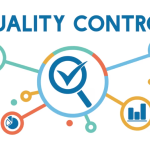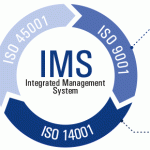Thermal imaging plays a critical role in condition monitoring by detecting early signs of equipment deterioration through temperature analysis. As machinery ages and faces stresses like friction, corrosion, and vibration, it becomes vulnerable to failure. Thermography provides an early warning system, especially when used as part of predictive maintenance, allowing teams to … [Read more...] about Important Role of Thermal Imaging for Condition Monitoring
Quality-Quality Management
Solving the Productivity Paradox
The failure of automation-driven strategies to deliver promised productivity gains, known as the “productivity paradox,” stems from a flawed approach that prioritizes cutting labor costs rather than improving value creation. This mindset, rooted in outdated ROI models and managerial assumptions, leads to the replacement of workers with technology without fully understanding or … [Read more...] about Solving the Productivity Paradox
Book Review: Toyota’s Improvement Thinking from the Inside
Sarah K. Womack’s Toyota’s Improvement Thinking from the Inside is a powerful counterpoint to the shallow adoption of lean tools that dominates much of the business and consulting landscape. Drawing from her eight-year journey within Toyota, Womack goes beyond the how-to guides of kaizen and Lean Six Sigma and instead presents a deeply personal and cultural interpretation of … [Read more...] about Book Review: Toyota’s Improvement Thinking from the Inside
What Is Pre-Shipment Inspection for Quality?
A Pre-Shipment Inspection (PSI) is an essential step in quality control, conducted once production is complete to verify that goods meet contractual obligations before they are shipped. This process benefits both buyers and suppliers by ensuring product compliance, minimizing disputes, and reducing costly logistics issues such as returns or recalls. PSI includes various checks, … [Read more...] about What Is Pre-Shipment Inspection for Quality?
The Ultimate Guide to Understanding Quality Assurance vs. Quality Control
Quality assurance (QA) and quality control (QC) are often confused but serve distinct roles in ensuring product and service quality. QA is a proactive approach that focuses on process optimization and defect prevention, incorporating customer feedback and continuous evaluation to maintain high standards. It extends beyond pre-production planning to monitor the entire product … [Read more...] about The Ultimate Guide to Understanding Quality Assurance vs. Quality Control
Quality Control in Manufacturing: Methods, Best Practices, and Implementation
Quality control in manufacturing is a structured approach to monitoring production processes to ensure that final products meet specified standards. It involves methods such as in-process inspections, material testing, equipment control, and statistical sampling. These techniques allow manufacturers to identify and correct defects before products reach customers. While quality … [Read more...] about Quality Control in Manufacturing: Methods, Best Practices, and Implementation
14 Examples of Quality Metrics in Manufacturing for Product Quality Assurance
Measuring quality metrics in manufacturing is essential for identifying inefficiencies and improving product standards. These metrics are divided into process metrics (evaluating production efficiency), product metrics (assessing defect rates and customer satisfaction), maintenance metrics (ensuring equipment reliability), and supplier quality metrics (monitoring material … [Read more...] about 14 Examples of Quality Metrics in Manufacturing for Product Quality Assurance
How to Identify Non-Conformance at Work
Non-conformance in the workplace occurs when processes or products fail to meet specified requirements, leading to inefficiencies, safety risks, or regulatory violations. It can be categorized into minor and significant non-conformances, with minor issues typically involving isolated documentation or procedural errors. In contrast, major non-conformances include critical … [Read more...] about How to Identify Non-Conformance at Work
Understanding How Quality Spreads in Manufacturing
In manufacturing, every operation and subassembly contributes to the quality of the final product. Understanding how these attributes are transmitted throughout production is essential for identifying quality issues and implementing improvements. Quality transmissibility helps manufacturers analyze the relationship between individual subassemblies and the overall product, … [Read more...] about Understanding How Quality Spreads in Manufacturing
The State of Quality Management in 2025 and Beyond
As manufacturers enter 2025, they face mounting challenges, including labor shortages, economic uncertainty, supply chain disruptions, and the pressing need for digital transformation. A recent survey of over 330 U.S. manufacturing leaders highlights these concerns, with 56% citing a lack of skilled labor as a top pressure driver and 45% identifying digital transformation as a … [Read more...] about The State of Quality Management in 2025 and Beyond
What is In-Process Inspection: Procedure, Stages, Types and Applications
In-process inspection is a proactive manufacturing strategy that involves checking product quality at various stages of production. By identifying and addressing defects early, it reduces waste, enhances product integrity, and improves efficiency. Critical inspection points include raw material verification, dimensional accuracy during production, and pre-packaging quality … [Read more...] about What is In-Process Inspection: Procedure, Stages, Types and Applications
Driving Quality Control Excellence with MOM Integration
Integrating MOM with QMS enhances quality control by providing real-time visibility into production processes, automating quality checks, and streamlining compliance reporting. Unlike Manufacturing Execution Systems (MES), MOM offers a broader scope, incorporating production monitoring, maintenance, logistics, and quality management into a unified system. This integration … [Read more...] about Driving Quality Control Excellence with MOM Integration
What Types Of Product Testing Labs Are There?
This podcast focuses on the nuances of selecting and working with different types of testing labs—calibration, compliance, and reliability labs. Calibration labs ensure measurement tools and equipment meet precise standards, which is critical for maintaining product quality. Compliance labs focus on meeting regulatory and legal requirements for various markets, often involving … [Read more...] about What Types Of Product Testing Labs Are There?
How Integrated Management Systems Can Improve Quality Management
Integrated Management Systems (IMS) offer organizations a cohesive approach to managing diverse operational areas such as quality, environmental impact, and health and safety. By combining frameworks like ISO 9001, ISO 14001, and ISO 45001 into a single system, IMS reduces the inefficiencies associated with maintaining stand-alone systems. This integrated approach minimizes … [Read more...] about How Integrated Management Systems Can Improve Quality Management
Real Life Examples of Quality Management Systems That Worked
Quality management has been a transformative force in many industries, with Toyota, Motorola, Ford, Xerox, and Ritz-Carlton providing compelling examples of its effectiveness. Toyota’s Lean Manufacturing System revolutionized production processes by reducing waste and focusing on continuous improvement. Techniques like Just-In-Time production and automation with a human touch … [Read more...] about Real Life Examples of Quality Management Systems That Worked
15 Top Quality KPIs in Manufacturing
Tracking and optimizing Key Performance Indicators (KPIs) is vital for manufacturing success, ensuring quality and efficiency. Metrics such as First Pass Yield (FPY) gauge production efficiency by measuring the percentage of products completed correctly on the first attempt. Defects Per Unit (DPU) and Scrap Rate monitor product defects and material waste, helping identify … [Read more...] about 15 Top Quality KPIs in Manufacturing
Automated Industrial Quality Control Market and Industry Analysis and Forecast, 2024-2032
The automated industrial quality control market is expanding rapidly, with a forecasted valuation of USD 0.82 billion by 2032. This growth is supported by the adoption of advanced technologies like infrared cameras, lasers, and magnetic fields to enhance defect detection, streamline manufacturing, and reduce waste. Applications are broad, spanning automotive, metal, and … [Read more...] about Automated Industrial Quality Control Market and Industry Analysis and Forecast, 2024-2032
Monitoring and audit quality: Does quality standards compliance matter?
This study explores the relationship between monitoring small and medium-sized practice firms (SMPs) and audit quality, emphasizing the role of quality standards compliance as a mediating factor. Using data from 209 SMPs in Ghana and variance-based structural equation modeling, the study demonstrates a statistically significant positive link between monitoring and audit … [Read more...] about Monitoring and audit quality: Does quality standards compliance matter?
6 Alternate Frameworks To Quality Management That Work
Six alternative frameworks for quality management can cater to modern business complexities. Agile emphasizes iterative development, adaptability, and customer collaboration, making it effective for environments requiring quick responses to feedback. Lean focuses on waste elimination and continuous improvement, exemplified by Toyota’s efficient and quality-focused production … [Read more...] about 6 Alternate Frameworks To Quality Management That Work
Quality Control in the Mass Spectrometry Proteomics Core: A Practical Primer
Quality control (QC) in mass spectrometry-based proteomics has seen significant advancements, yet adoption remains inconsistent. In proteomics cores, QC is crucial for ensuring data reliability, especially when data serves non-expert clients who rely on its accuracy. This primer outlines a practical guide to QC materials and software, aiming to streamline QC implementation in … [Read more...] about Quality Control in the Mass Spectrometry Proteomics Core: A Practical Primer


















